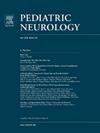我们离成功还有多远?新发儿童癫痫的神经心理评估
IF 2.1
3区 医学
Q2 CLINICAL NEUROLOGY
引用次数: 0
摘要
在所有新诊断为癫痫的儿童和成人中,大约有一半在评估时也表现出行为和/或认知困难。虽然神经心理学评估被推荐作为癫痫发作时护理的常规部分,但获得评估往往受到许多因素的限制。为了更好地确定问题的严重程度,我们调查了美国和加拿大的神经学家和神经心理学家,以弄清新发癫痫的青少年被转诊和接受神经心理学评估的频率。方法在2022年,通过美国癫痫协会通讯、专业列表服务和同事招聘,对神经学家和神经心理学家进行在线调查。结果39名神经科医生和47名神经心理学家中,大多数来自学术医学中心(神经科医生占90%,神经心理学家占77%)和隶属于综合性癫痫中心(神经科医生占95%,神经心理学家占85%)。根据神经科医生(77%)和神经心理学家(64%)的报告,大多数实践机构的儿童癫痫神经心理学家少于三名。神经学家和神经心理学家在很大程度上一致认为,对新发儿童癫痫患者进行神经心理学评估的病例占0%至25%(神经学家= 67%,神经心理学家= 70%)。大多数神经科医生(69%)同意神经心理学评估对非手术癫痫患者的护理有很大的帮助。然而,相当大比例(31%)的人表示,他们只是“有时”知道什么时候该求助。结论新发癫痫患儿不需要常规接受神经心理学评估,尽管这是一种推荐的护理标准。一些障碍是神经心理学家的可用性有限,保险拒绝,以及难以获得护理。本文章由计算机程序翻译,如有差异,请以英文原文为准。
How Close Are We? Neuropsychologic Assessment in New-Onset Pediatric Epilepsy
Background
Approximately half of all children and adults newly diagnosed with epilepsy also show behavioral and/or cognitive difficulties upon assessment. Although neuropsychological assessment is recommended as a routine part of care at epilepsy onset, access to assessment is often restricted by many factors. To better define the extent of the problem, we surveyed neurologists and neuropsychologists in the United States and Canada to clarify how frequently youth with new-onset epilepsy are referred for and undergo neuropsychological assessment.
Methods
In 2022, online surveys for neurologists and neuropsychologists were disseminated via the American Epilepsy Society newsletter, professional listservs, and colleague recruitment.
Results
Of the 39 neurologists and 47 neuropsychologists who responded, most were in academic medical centers (neurologists = 90%, neuropsychologists = 77%) and affiliated with comprehensive epilepsy centers (neurologists = 95%, neuropsychologists = 85%). Most practice settings had less than three pediatric epilepsy neuropsychologists as reported by neurologists (77%) and neuropsychologists (64%). Neurologists and neuropsychologists largely agreed that neuropsychologic assessment of patients with new-onset pediatric epilepsy occurred in 0% to 25% of cases (neurologists = 67%, neuropsychologists = 70%). Most neurologists (69%) concurred that neuropsychological assessment contributes substantially to the care of nonsurgical epilepsy patients. However, a sizable percentage (31%) indicated that they only “sometimes” knew when to refer.
Conclusions
Children with new-onset epilepsy do not routinely undergo neuropsychological assessment despite it being a recommended standard of care. Some of the barriers were limited availability of neuropsychologists, insurance denials, and difficulty accessing care.
求助全文
通过发布文献求助,成功后即可免费获取论文全文。
去求助
来源期刊

Pediatric neurology
医学-临床神经学
CiteScore
4.80
自引率
2.60%
发文量
176
审稿时长
78 days
期刊介绍:
Pediatric Neurology publishes timely peer-reviewed clinical and research articles covering all aspects of the developing nervous system.
Pediatric Neurology features up-to-the-minute publication of the latest advances in the diagnosis, management, and treatment of pediatric neurologic disorders. The journal''s editor, E. Steve Roach, in conjunction with the team of Associate Editors, heads an internationally recognized editorial board, ensuring the most authoritative and extensive coverage of the field. Among the topics covered are: epilepsy, mitochondrial diseases, congenital malformations, chromosomopathies, peripheral neuropathies, perinatal and childhood stroke, cerebral palsy, as well as other diseases affecting the developing nervous system.
 求助内容:
求助内容: 应助结果提醒方式:
应助结果提醒方式:


